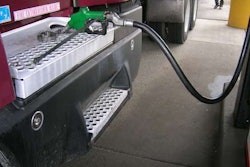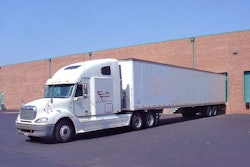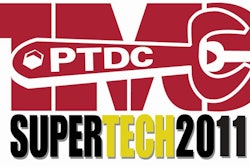The Propane Education & Research Council demonstrated how fleet managers and executives can reduce emissions and maintenance costs with buses fueled by propane autogas at the 2011 BusCon Expo at Chicago’s Navy Pier.
On display in PERC’s Propane Autogas Pavilion were a CleanFuel USA propane autogas refueling dispenser and a Roush CleanTech Ford E-450 shuttle bus fueled by propane autogas. The 30-passenger vehicle uses a 6.8-liter engine and a 41-gallon fuel tank that allows for a range up to 320 miles. Also on display was a zero-turn-radius commercial mower supplied by Metro Lawn.
A PERC spokesperson participated on a panel of alternative fuel industry experts in the session “Making the Move to Alternative Fuels.” Panelists discussed available fuel options, including propane autogas, refueling infrastructure and maintenance costs, and how to switch a bus fleet to an eco-friendly alternative fuel.
“Today’s fleet managers are turning to propane autogas for their shuttles and buses as a clean safe, affordable, reliable and efficient alternative fuel,” says Roy Willis, PERC president and chief executive officer. “Choosing propane autogas means choosing the most widely used alternative transportation fuel in the nation – a fuel with an established infrastructure and less maintenance and fuel costs.”
A keynote address by Mark Smith, vehicle technologies deployment manager at the Energy Department, explained how the department’s Clean Cities program could help fleets incorporate alternative fuels.
Fleet vehicles fueled by propane autogas include light- and medium-duty trucks, vans, passenger vehicles, school buses and taxis. School buses fueled by propane autogas are available from, or are being developed by, Blue Bird Corp., Collins Bus Corp., Thomas Built Buses and Freightliner Custom Chassis.
PERC says propane autogas buses produce fewer annual life-cycle greenhouse gas emissions per year than buses fueled by compressed natural gas or gasoline; on average, fleet vehicles fueled by propane autogas emit 12 percent less carbon dioxide, about 20 percent less nitrogen oxide and up to 60 percent less carbon monoxide than gasoline-fueled vehicles. PERC says propane autogas fuels more than 270,000 on-road vehicles domestically and 15 million vehicles worldwide.










